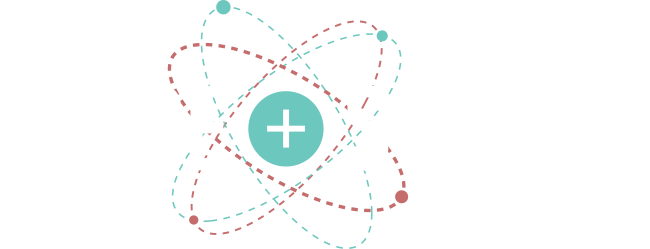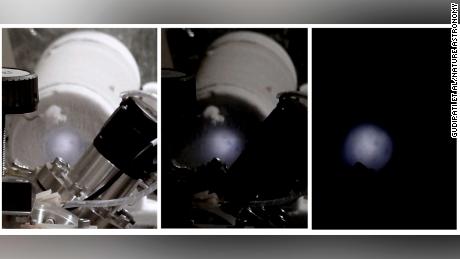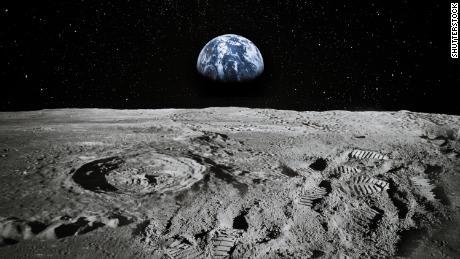(CNN)Experiments performed on the International Space Station have suggested that bacteria from Earth could be used to extract useful minerals on the moon or Mars.
Microorganisms are already used on Earth to mine economically important elements from rocks, including rare earth elements, used in mobile phones and electronics.
Scientists in the United Kingdom spent 10 years developing matchbox-size biomining reactors for the experiment. Eighteen of the devices were transported to the ISS on board a SpaceX rocket in July 2019. Small pieces of basalt, similar to much of the material on the surface of the moon and Mars, were loaded into the devices and soaked in bacterial solution.
The three-week experiment assessed the potential of three species of bacteria to extract rare earth elements from the basalt. Only one, Sphingomonas desiccabilis, was able to leach rare earth elements from basalt at all three different gravity conditions -- microgravity (sometimes called zero gravity), Mars-like gravity and under standard conditions on Earth.
The findings of the study, which published in the journal Nature Communications on Tuesday, show that biomining on the moon and Mars could be possible.
No lunar gold rush just yet
It's unlikely to be economically viable to mine these elements in space and bring them back to Earth, according to Charles Cockell, a professor of astrobiology at the University of Edinburgh's School of Physics and Astronomy, who led the project. However, he said that space biomining could potentially support a self-sustaining human presence in space.
"Our experiments lend support to the scientific and technical feasibility of biologically enhanced elemental mining across the Solar System," he said in a news statement.
"For example, our results suggest that the construction of robotic and human-tended mines in the Oceanus Procellarum region of the Moon, which has rocks with enriched concentrations of rare earth elements, could be one fruitful direction of human scientific and economic development beyond Earth."
Many countries are interested in space resources. NASA has said it is looking for commercial companies to collect dust and rocks from the lunar surface as well as its plan to send the first woman and the next man to the moon as part of its Artemis mission by 2024.
The European Space Agency has said it plans to start mining for water and oxygen on the moon by 2025. Later this year, China is expected to launch a rover that will land on the moon and bring back lunar soil samples to Earth.
"Microorganisms are very versatile and as we move into space, they can be used to accomplish a diversity of processes. Elemental mining is potentially one of them," said Rosa Santomartino, a postdoctoral research scientist in the University of Edinburgh's School of Physics and Astronomy, who worked on the project.










